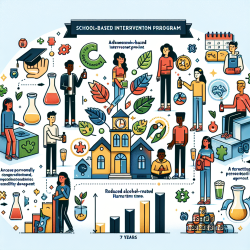The COVID-19 pandemic has reshaped many aspects of our lives, including how schools operate. One significant shift has been the implementation of universal free school meals (USM) in various states, particularly in California. This initiative aims to provide free meals to all students, regardless of their financial status. But what are the real benefits and challenges of this approach?
Increased Participation and Reduced Stigma
According to a study conducted with school food authorities (SFAs) in California, one of the most notable benefits of USM is the increase in student meal participation. Approximately 79.2% of SFAs reported a rise in meal uptake. This increase is crucial as it ensures more students have access to nutritious meals, which can significantly impact their academic performance and overall health.
Additionally, the study highlighted a reduction in stigma associated with receiving free or reduced-price meals. By offering meals to all students without discrimination, schools have created a more inclusive environment where no child feels singled out due to their economic background.
The Challenges: Staffing and Supply Chain Issues
Despite the positive outcomes, implementing USM is not without its challenges. The study revealed that 76.9% of SFAs faced staffing shortages, while 88.9% struggled with procuring necessary food types and amounts. These issues were exacerbated during the pandemic due to supply chain disruptions.
Moreover, financial sustainability remains a concern as federal reimbursements often fall short of covering meal costs. Over 40% of SFAs reported that these reimbursements were insufficient, leading to potential financial deficits.
Looking Ahead: Strategies for Improvement
The study suggests several strategies to overcome these challenges. Schools need additional resources such as facilities and equipment upgrades, improved communication and marketing strategies, and enhanced financial management practices.
Furthermore, reducing food waste through better meal planning and offering culturally diverse menu options could also help mitigate some logistical issues.
The Bigger Picture: A Call for Further Research
This research underscores the importance of universal free school meals in promoting equity and nutrition among students. However, it also highlights the need for further studies to optimize implementation strategies and understand long-term impacts.
If you're an educator or policymaker interested in improving school meal programs, consider diving deeper into this research area. Understanding the nuances of USM can help create more effective policies that benefit all students.










